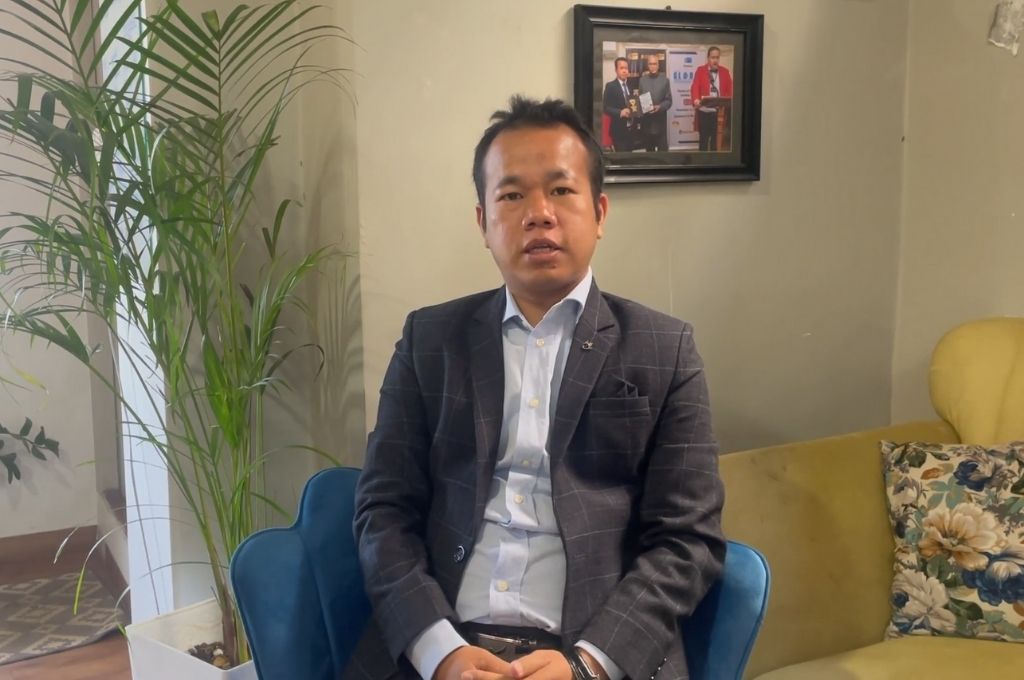Despite serving a critical function, the social sector in India—like the rest of Asia—suffers from a trust deficit. Nonprofit organisations, trusts, and foundations have to often expend considerable resources and efforts to prove their good intentions to governments and donors. While there is trust between some nonprofits and the communities they serve, it does not translate into broader societal trust in the sector as a whole. The actions of a few bad actors or individuals also leads to a presumption of guilt for all.
Lack of trust impedes the flow of much-needed funding to organisations working on the front lines to help communities. What can be done to mitigate the trust deficit and enable a more supportive ecosystem for the social sector? The Centre for Asian Philanthropy and Society (CAPS) aims to answer this question through the biennial Doing Good Index. Launched in 2018, the index identifies the factors that enable and impede the giving and receiving of private social investment. For the 2022 edition, CAPS surveyed 2,239 social delivery organisations and 126 sector experts across 17 Asian economies to understand challenges and opportunities.
The data shows just how debilitating the trust deficit and its consequences are for our communities. For instance, 95 percent of nonprofit organisations in India provided direct COVID-19-related assistance during the pandemic; at the same time, however, 61 percent reported a decrease in the number of donors and in their funding. Evidently, then, managing this deficit at a systemic level is imperative if we are to increase trust and, consequently, funding to the social sector.
Lessons from India’s neighbours
There are several sets of measures being implemented in different Asian economies to increase transparency and accountability in the social impact space. Some of these fall under the remit of governments, others of the organisations working in the social sector themselves. Our research shows that India can learn best practices from other countries in the region.
1. Mandatory reporting
Mandatory reporting requirements and governance rules help the public see what nonprofit organisations and other types of social enterprises are doing and where the money goes. Annual reports that include not only financial accounts but also information on how the funds were spent, the impact they had, and who benefitted from them can help a great deal in boosting transparency. India is only one of three economies in Asia (Hong Kong and Malaysia are the other two) that does not require the submission of annual reports.
2. Easy-to-understand regulations
Regulations play an important role in building trust as they strengthen accountability and transparency. However, in order to ensure their effectiveness, these laws need to be easily understandable. Seventy-five percent of the respondents to the Doing Good Index in India found relevant laws difficult to understand—an increase from 50 percent in 2020 and much higher than the Asian average of 57 percent.
When laws are difficult to understand, they are difficult to follow. Through research and interviews, CAPS found that, in India, many cash-strapped nonprofits that do not have the capacity to comply with confusing and dynamic reporting requirements (such as changes to the FCRA and Income Tax Act) have to spend scarce resources on tax, financial, and legal experts to unpack regulation. Even well-financed organisations have had to increase their compliance budgets, thus diverting much-needed programme funding to reporting duties.
3. Tax incentives and other fiscal measures
Taxes are powerful tools available to governments to signal trust and unlock philanthropic capital. Tax incentives send a clear message from the government about the value they place on donating to nonprofit organisations. Of the 17 economies (15 countries plus Hong Kong and Taiwan) covered by the Doing Good Index, 11 offer a 100 percent tax subsidy for individual donations and 14 offer this for corporate donations. In fact, Singapore offers a whopping 250 percent tax subsidy for both individuals and corporations with no limit.
India, however, offers only a 50 percent rate of deduction for both individuals and companies, while also limiting the income eligible for these subsidies to 10 percent. A 100 percent tax subsidy is available for donations to some government-approved funds and a handful of national charities such as the Family Planning Association of India and National Association for the Blind, but these are very limited. Singapore is clearly sending the message that the government wants its citizenry to engage with the social sector and is prepared to incentivise the same. What message can the Indian government send to strengthen the sector?

What can the social sector do?
There are steps the social sector can take upon itself.
1. Set up independent accreditation and certification systems
For instance, the Philippines and Pakistan have independent accreditation and certification schemes to create and oversee standards and requirements for social sector organisations. In Pakistan, this facilitates the granting of tax-exempt status for organisations, while in both economies these processes allow for the conferral of tax deduction availability. In India, the hope of the Social Stock Exchange is that it will act as this type of legitimation platform once it is truly up and running.
The social sector does not even need to wait for the government to establish this. For instance, there can be coordinated efforts to help nonprofits become more transparent with the help of technology. Organisations such as Guidestar India and GiveIndia provide an important service to this end through their online nonprofit information platforms that profile thousands of organisations.
2. Demonstrate accountability
Nonprofits can build trust by sharing annual reports on their websites to demonstrate accountability and transparency as well as their impact. Corporates, philanthropists, and foundations can assist smaller nonprofits that do not have the technical expertise, technology, or human resources to set up websites and prepare and publish annual reports. This kind of capacity building helps the sector as a whole to become more accountable and share knowledge. In fact, our studies find that organisations that are more transparent engender more trust and are thus able to raise more funds.
There is no doubt that the social sector performs a vital role in many communities across the country. We know that the most vulnerable citizens rely on their services. In this context, it makes sense to create systems that allow philanthropists and the nonprofit organisations they support to help the government address the nation’s multiple social challenges.
Over the past few years, the Indian government has managed an inclusive and thoughtful consultative process on building the Social Stock Exchange. The launching of this initiative is innovative and laudable—why not do the same for regulations for the social sector more broadly to help the community work together with more integrity, more accountability, and more trust.
—





